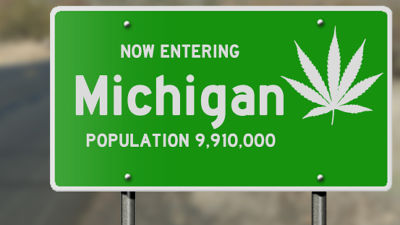


Medical marijuana use is legal in Michigan, and the rules governing its use and transport are fairly new. Driving under the influence can be unsafe and driving while using marijuana is normally a crime, so even if you are prescribed marijuana legally, it is important to know the parameters of its use so you can avoid car accidents and make sure you are being cautious on the road. Remember that even if you are prescribed marijuana for a medical purpose, you still have an obligation to share the road with others responsibly.
Under usual circumstances, any amount of marijuana found in a driver's system (blood or urine) would be enough to arrest someone for driving under the influence. The person would face penalties ranging from fines, to license loss, to jail time. But worst of all, too many people are injured or killed when drivers decide to get behind the wheel once they have drugs in their system. People are under the misconception that "getting high" and driving is not as dangerous as getting drunk and driving. But this simply is not true. If your faculties are impaired, then they are impaired, and the result of a car crash is just as damaging.
The zero tolerance policy on dealing with marijuana use and driving does not extend the same way to medical marijuana use, however. In 2013, the Michigan Supreme Court decided People v. Koon, which made it possible for people prescribed marijuana to have the drug in their system and still be able to drive.
Before Koon, the Michigan Medical Marijuana Act (MMMA) conflicted with the Michigan Vehicle Code. The Michigan Vehicle Code made it illegal to have any amount of marijuana in one's system while driving, but the MMMA had a provision that stated cardholders could not drive while intoxicated. So cardholders could still be arrested if they drove and had any amount of marijuana in their system whether it impaired their driving or not.
Koon was a victory for medical marijuana users because the state had to show the cardholder was impaired in order to arrest the person for an OVI / DUI, not just that there was marijuana in their system. Impairment could be shown by observing the individual's driving or through field sobriety tests.
In April 2016, however, the Michigan Legislature advanced a bill that would put a legal limit on the amount of medical marijuana in a person's system. The House voted almost unanimously to create a commission that would research and recommend a legal limit for THC. So the laws in this area could change yet again in the not so distant future.
Clearly, the Michigan legislature has concerns about there being a loophole for drivers getting high and driving. Even if medical marijuana is legal, being safe on the roads is paramount. The law should not put other drivers, passengers, and children at risk due to allowing medical marijuana. Finding a balance will be key to making sure Detroit and Michigan-wide roads and highways are safer for everyone.
While drinking and driving is a known problem, getting high and driving is too. Accidents caused by impaired driving is the number one cause of teen deaths, and it causes devastating injuries every year. Injuries such as traumatic brain injury, loss of limbs, internal injury, soft tissue injury, broken bones, and even death can shatter families and destroy lives. It just isn't worth it to be intoxicated and drive. If you are prescribed marijuana for a medical reason, you should make sure to use it safely and avoid getting in the car. Have a friend bring you groceries or ask a loved one to drive for you instead.
If you or a loved one has been injured in a car accident, contact one of our Sachs Waldman personal injury attorneys today at (313) 965-3464 or fill out our online form. We are your best choice if you need experienced legal representation. Consultations are free and confidential.
© 2025 Michigan Injury Attorneys
View Our Disclaimer | Privacy Policy
Detroit Personal Injury & Car Accident Attorneys